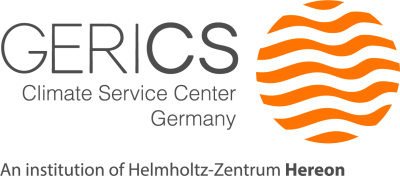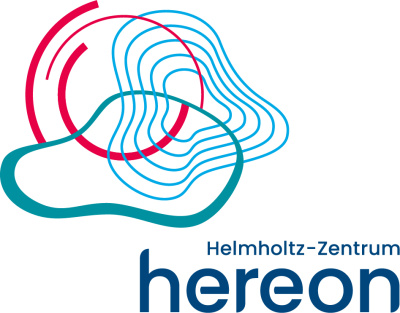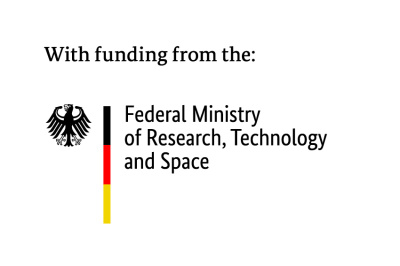Research
The Project

“Co-creating Climate Services for Care Economy and Caring Society” (CoCareSociety) is a Junior Research Group and research project funded by the German Federal Ministry of Education and Research (BMBF), in the framework of the Research for Sustainable Development programme (FONA).
Project lead: Dr. Jo-Ting Huang-Lachmann
Start date: 01.10.2022
Duration: 60 Months (5 years)
Our main objectives
As part of Helmholtz-Zentrum Hereon and Climate Service Center Germany (GERICS), our work focuses on climate services for health. Together with partners and citizen scientists, we are co-developing new types of climate services and exploring co-benefits that prepare for long-term demographic change, climate change, future energy demands, future living, and well-being.
The CoCareSociety vision is a friendly, climate-resilient, affordable, and sustainable ‘co-care’ society for older adults. With this research project, we strive to contribute to the Sustainable Development Goals (SDGs), in particular SDG1 on no poverty, SDG3 on good health and well-being, SDG7 on affordable and clean energy, SDG11 on sustainable cities and communities, SDG13 on climate action, and SDG17 on partnerships for the goals.
We also aim to contribute to the mitigation and adaptation strategies of the Paris Agreement, the EU’s latest Fit for 55 package under the European Green Deal, and the World Health Organisation’s programmes on long-term care for older persons, including the UN-wide initiative on the Decade of Healthy Ageing.
Our work
We are investigating the interrelationships between (1) climate change, (2) long-term care and health of the aging, and (3) their energy efficiency in the living environment. In addition, we are exploring how changes can be induced in the interconnected systems to maximise health-climate-energy nexus outcomes.
We focus on the interface of long-term care and health of older adults, climate change, and energy topics. Interdisciplinary collaboration is a focus throughout the project, reflected in our research questions and set-up of the CoCareSociety group and partnerships. Together with stakeholders, we will co-create and identify win-win measures for older citizens leveraging the climate-health-energy nexus.
Our research questions are:
- How are factors of climate change, energy efficiency, and long-term care and health of older people interconnected?
- How can health-energy-climate nexus measures maximise heath, resilience, sustainability, and economic outcomes to create synergies for future ageing societies and care economies?
- How can future age-friendly living be compatible with future climate, climate extremes and stay still affordable in terms of health, care and energy?
We will publish our research results in scientific journals, presented at international conferences, and communicated through interdisciplinary events for further public dissemination. We will also publish our results on this website.
Throughout the project, we will actively engage stakeholders and partners through CoCare Labs and Hybrid Forums. In addition, we will launch citizen science initiatives for data collection, educational purposes, and to induce behavioural change.
Our research outcomes are strengthened by partners from Japan, Taiwan, Senegal, Uganda, the UK, and USA as well as international fellows in the fields of climate, environment, and health. These partners also add wider networks to the CoCareSociety project, such as the International Science Council and Future Earth.
Our publications in scientific journals
- Katsaros, K., Marggraf, C. et al., 2024. Exploring interconnections: A comprehensive multi-country analysis of climate change, energy demand, long-term care, and health of older adults. Maturitas, Volume 184, June 2024. Explore the full article here (open access): doi.org/10.1016/j.maturitas.2024.107961 This study aims to address the interrelated risks of climate change, long-term care and health, and energy demand that affect the elderly. Looking at the intricate interplay between these issues has revealed a complex web of cascading risks. The convergence of extreme weather events and demographic change poses a significant threat to older adults. It is imperative to develop policies that incentivize technological innovation, promote the deployment of clean energy and encourage sustainable practices. Priority should be given to supporting countries in the Global South, where social injustices exacerbated by climate extremes are disproportionately felt.
- Work in progress: Narrative review paper
- Work in progess: Systematic literature review paper
Our poster presentations
- Huang-Lachmann, J.-T. (2023, 21.-23. June). CoCareSociety: Co-Creating Climate Services for Care Economy and Caring Society. Herrenhausen Conference: Climate Related Systemic Risks: Lessons Learned from Covid-19, Hannover.
- Katsaros, K. (2023, 21.-23. June). Climate Change and trending outcomes for the care of older adults and financial expenditure: A planned systematic review. Herrenhausen Conference: Climate Related Systemic Risks: Lessons Learned from Covid-19, Hannover.
- Katsaros, K. and Huang-Lachmann, J.-T.: A systematic review on climate change, trending outcomes for the care of older adults, and financial expenditure, EGU General Assembly 2024, Vienna, Austria, 14–19 Apr 2024, EGU24-1262, doi.org/10.5194/egusphere-egu24-1262, 2024.
- Marggraf, C. (2023, 21.-23. June). The inter-relationships between health aspects, climate change and energy demand in living environments among vulnerable groups. Herrenhausen Conference: Climate Related Systemic Risks: Lessons Learned from Covid-19, Hannover.
- Marggraf, C. and Huang-Lachmann, J.-T.: The interconnections between household energy, health, and climate change: a comprehensive umbrella review, EGU General Assembly 2024, Vienna, Austria, 14–19 Apr 2024, EGU24-8032, doi.org/10.5194/egusphere-egu24-8032, 2024.
Reference documents and web resources
Hungry for more? Learn about the scientific background to our research.
- Angrist, J. D., & Krueger, A. B. (2001). Instrumental variables and the search for identification: From supply and demand to natural experiments. Journal of Economic Perspectives, 15(4), 69-85.
- GERICS-Broschüre Gesundheit und Klimawandel
- GERICS-Klimaausblick
- Hashizume, M., Kim, Y., Ng, C. F. S., Chung, Y., Madaniyazi, L., Bell, M. L., . . . Yi, S.-M. (2020). Health effects of Asian dust: A systematic review and meta-analysis. Environmental health perspectives, 128(6), 066001
- Hernandez, D. (2013). Energy insecurity: a framework for understanding energy, the built environment, and health among vulnerable populations in the context of climate change. Am J Public Health, 103(4), e32-34. Retrieved from https://www.ncbi.nlm.nih.gov/pubmed/23409876. doi:10.2105/AJPH.2012.301179
- Huang-Lachmann, J.-T. and Guenther, E., 2020. From Dichotomy to an Integrated Approach: Cities’ Benefits of Integrating Climate Change Adaptation and Mitigation. Sustainability, 12(18), p.7591.
- Huang-Lachmann, J.-T., 2019, Systematic review of smart cities and climate change adaptation, Sustainability Accounting, Management and Policy Journal, Vol. 10 No. 4, pp. 745-772.
- Huang-Lachmann, J.-T., Hannemann, M., & Guenther, E., 2018. Identifying links between economic opportunities and climate change adaptation: Empirical evidence of 63 cities. Ecological Economics, 145: 231-243.
- IPCC, 2023: Synthesis Report of the IPCC Sixth Assessment Report (AR6): Summary for Policymakers. Intergovernmental Panel on Climate Change
- Zheng, H., Long, Y., Wood, R., Moran, D., Zhang, Z., Meng, J., Feng, K., Hertwich, E. and Guan, D., 2022. Ageing society in developed countries challenges carbon mitigation. Nature Climate Change, 12(3), pp.241-248.
Status as of 11 September, 2024
CoCareSociety would like to thank the German Federal Ministry of Education and Research (BMBF) for the BMBF Junior Research Group funding support and the project management support from the German Aerospace Center (DLR).



